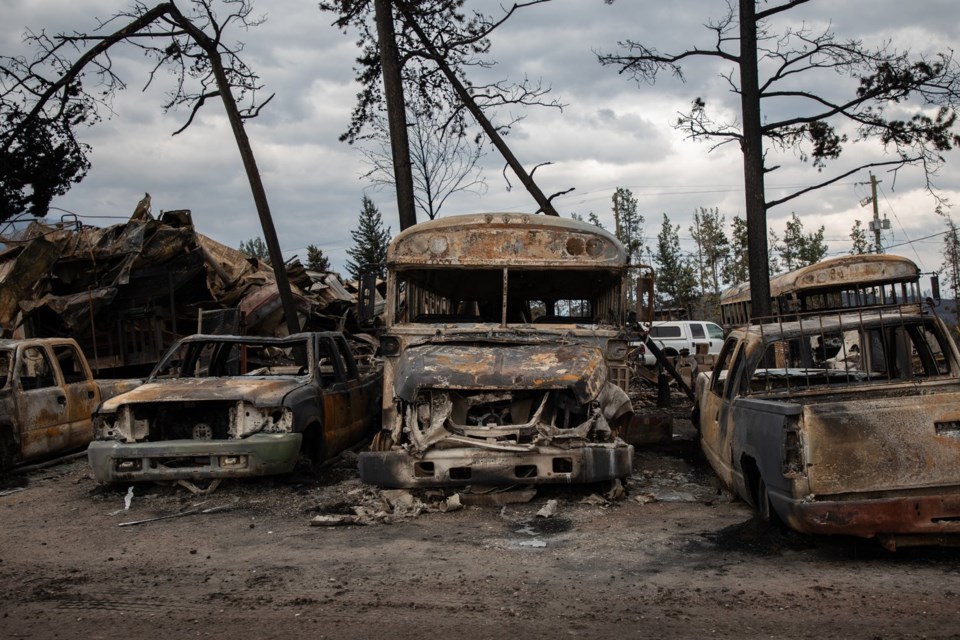OTTAWA — Human-caused climate change is making heat waves much more likely, the federal government says, bringing extreme weather from fires to storms.
That's according to Environment and Climate Change Canada's rapid extreme weather event attribution system, which compares today's climate to a pre-industrial one.
Natural Resources Minister Jonathan Wilkinson said there will be more wildfires from British Columbia to Manitoba this month, with climate change fuelling them.
"It is not unusual for Western Canada to see high levels of fire activity this time of year," he said at a press conference on Monday.
"However, forecasting anticipates that activity will be above average in parts of the West to well above-average in areas in B.C. and Alberta."
Fire activity in September is also expected to be above normal.
There are 474 fires blazing across the country, compared to the roughly 900 fires at this time last year.
More than 150 of the fires — including in Jasper, Alta. — are considered out of control, with more than 3.4 million hectares burned so far this year. That is well above the 25-year average of area burned.
First Nations are disproportionately affected by those wildfires, said Jenica Atwin, parliamentary secretary to the minister of Indigenous Services, with 80 per cent of their communities at risk.
"This is a challenging summer, and I know that First Nations are anxious," she said. "But let me say this once again: Canada stands with you. We will be at your side before, during and after wildfires, and we will cover every single dollar of eligible costs that you encounter."
Even when conditions become less dry, Canadians have another thing to worry about: an above-average hurricane season.
"We are keeping a very close eye on developing storms and the potential impacts on Canadians," said Emergency Preparedness Minister Harjit Sajjan.
Sajjan is also urging Canadians to prepare for more major named storms this season, with the U.S.'s National Oceanic Atmospheric Administration predicting up to 24.
The remnants of Hurricane Debby swept through eastern parts of the country on Friday, leaving widespread damage from flash flooding.
Quebec officials said 14 municipalities were under a state of emergency Monday afternoon after the storm dumped up to 175 millimetres of rain on Montreal.
A man in his 80s died after he was swept into the Batiscan River. About 550,000 Hydro-Québec customers lost power during the storm.
"Make sure you have an emergency kit and a family emergency plan and set up your property for preparedness," Sajjan said.
"That means, for example, clearing dead trees or branches, ensuring your roofs, windows and foundations are in good repair, and considering installing storm shutters."
This report by The Canadian Press was first published Aug. 12, 2024.
— With files from Maura Forrest in Montreal
Alessia Passafiume, The Canadian Press




